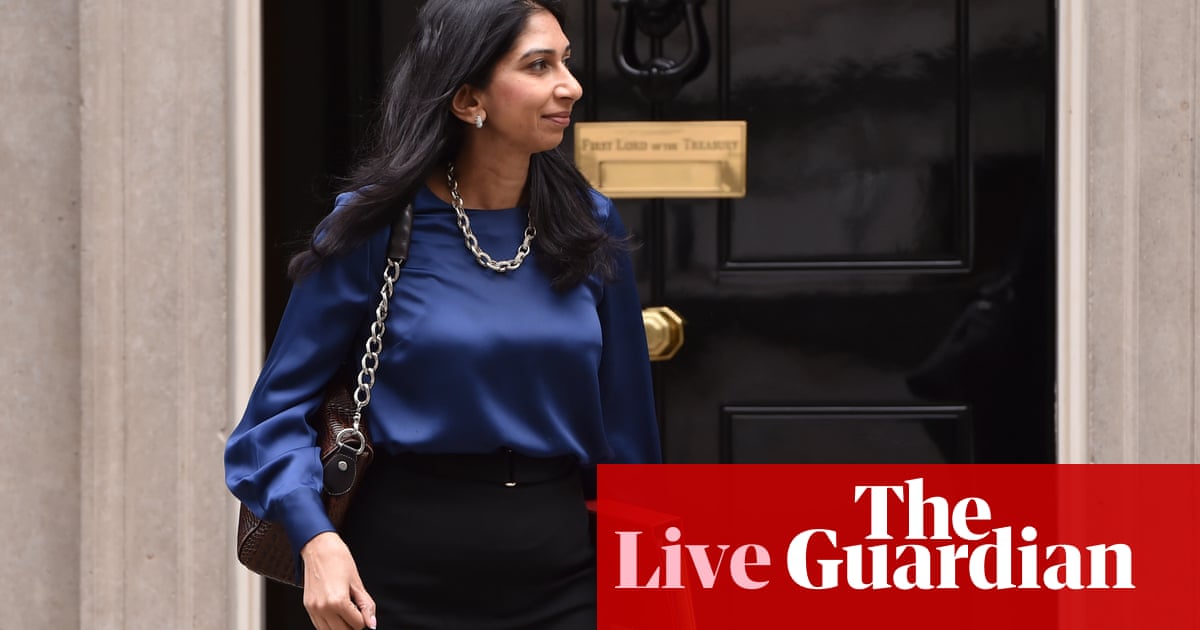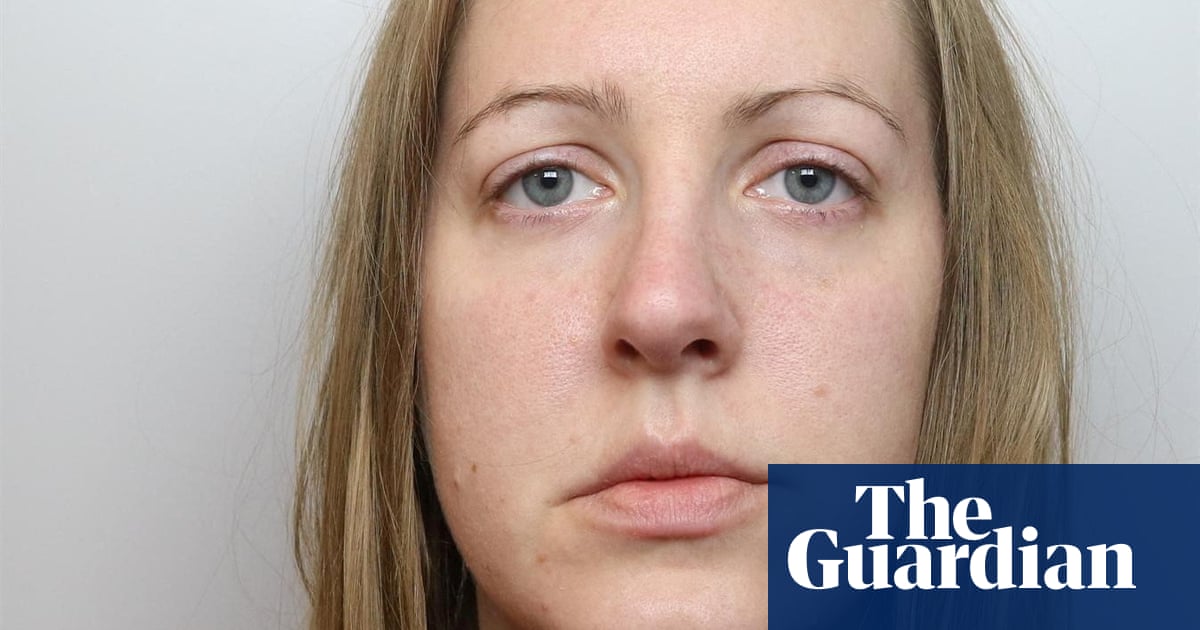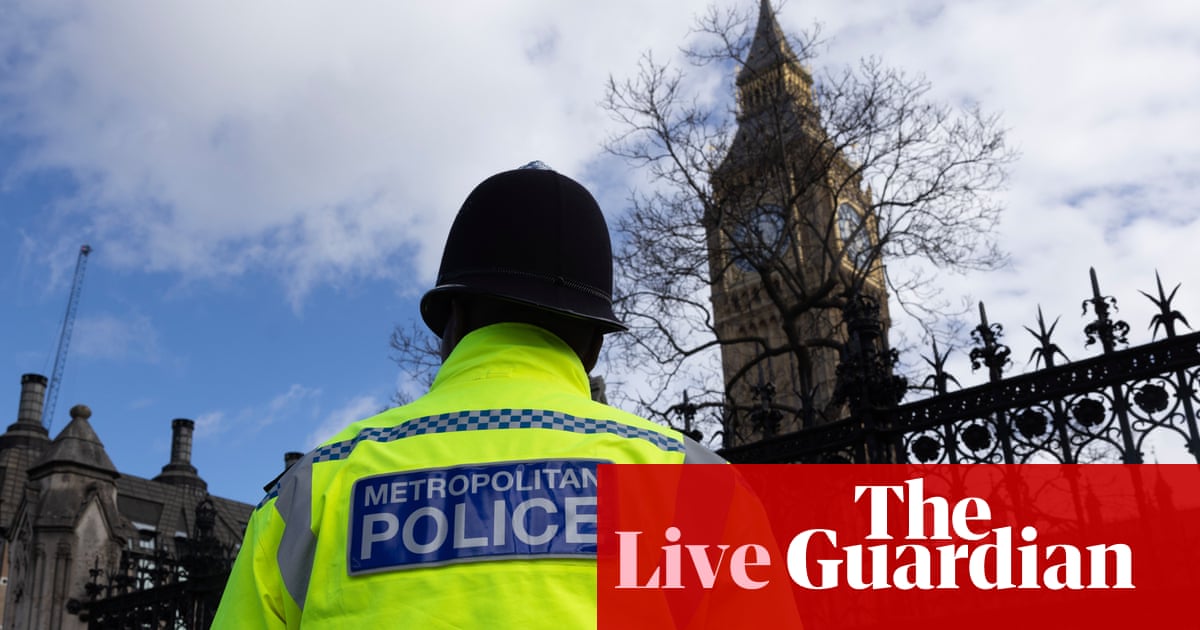
No 10 staff will be able to give evidence confidentially to inquiry into whether PM lied over Partygate, committee says
The Commons privileges committee has issued a statement after its first meeting to consider its inquiry into whether Boris Johnson lied to MPs about Partygate. It has issued a wide-ranging call for evidence, and it is inviting whistleblowers to give evidence anonymously if they want.
This provision seems intended to encourage civil servants working in No 10, who may have heard Boris Johnson reveal in private that he knew more about Downing Street partying during lockdown then he let on to MPs, to come forward.
The committee has also elected Harriet Harman, the former Labour deputy leader, as its chair. This had been expected.
And it has said that it will start taking oral evidence in the autumn. It has not said yet whether or not these sessions will be in public or in private. (Standards committee inquires into misconduct by individual MPs hear evidence in private.)
This suggests that the final report may not come until the end of the year, or later. At one point it was thought it could report in the autumn.
Here is an extract from the news release.
Following its first meeting to consider the matter referred to it, the committee is calling for evidence submissions and accounts from those with knowledge of events related to the inquiry. Specifically, the committee is seeking witness information and evidence which would enable it to determine whether or not [Boris Johnson] misled the house. The committee noted this may include evidence of:
-Mr Johnson’s knowledge of the activities in 10 Downing Street and the Cabinet Office under Covid regulations, from the occurrence of those events until now;
-any briefing given to, or inquiries made by, Mr Johnson relating to those events.
The committee will take a range of evidence in the course of the inquiry, including written and oral evidence. The committee also confirmed it would be willing to take oral or written evidence from people who wish to remain anonymous, subject to the chair being able to identify the individual’s identity in conjunction with committee staff, as well as the relevance and probity of their evidence.
The committee also said Sir Ernest Ryder, a former Lord Justice of Appeal, will serve as an adviser to the inquiry. This is in line with a recommendation from a review of the way the standards committees carries out inquiries into MPs; an external legal adviser could make the system fairer, the review said.
Afternoon summary
The Commons privileges committee has announced that No 10 staff will be able to give evidence anonymously to its inquiry into whether Boris Johnson lied to MPs about Partygate. (See 2.54pm.) In a statement, the committee said it was particularly interesting in hearing from people with knowledge of “Mr Johnson’s knowledge of the activities in 10 Downing Street and the Cabinet Office under Covid regulations, from the occurrence of those events until now” and “any briefing given to, or inquiries made by, Mr Johnson relating to those events”.
Dominic Raab has expressed doubts about including the right to an abortion in the forthcoming bill of rights, saying the matter was already “settled in UK law”.
China would be making “a catastrophic miscalculation” if it invaded Taiwan, Liz Truss has said, telling the Nato summit that the UK and other countries should reconsider trading relationships with countries that used economic power in “coercive” ways.
Ben Wallace, the UK defence secretary, has publicly called for higher defence spending by the middle of the decade in light of Russia’s war on Ukraine, in a move that sets him at odds with Boris Johnson and Rishi Sunak.
Tariffs on steel imports from China and other countries are to be extended for another two years, the UK government has announced, admitting the move risks breaching World Trade Organization (WTO) rules.
John Swinney, Scotland’s deputy first minister, has issued a correction after sowing confusion over the Scottish government’s claims it could win a mandate for independence at the next general election.
Johnson claims he came up with idea for European political community-type organisation before Macron
Boris Johnson has claimed that the concept of a new European political community - floated recently by the French president, Emmanuel Macron - is an idea first thought up by him, the BBC’s Jessica Parker reports.
Sheffield council chief executive suspended over Partygate returns to work
Kate Josephs, whose Downing Street leaving do featured prominently in the Sue Gray report, is to stay in her job as chief executive at one of England biggest local authorities, Sheffield city council has said.
Josephs led the government’s Covid-19 taskforce from July to December 2020. When details of her leaving party emerged in the media she released a statement admitting it took place and saying she was “truly sorry”.
She has been on discretionary paid leave from her £190,000-a-year Sheffield job ever since.
The cross-party Sheffield council committee considering her actions has now concluded its work, it said.
Josephs has been given a written warning but can return to her job as chief executive.
The decision was made based on the facts at hand and with very careful consideration. The committee acknowledges that Kate has apologised and believes that she feels genuine remorse.
Terry Fox, the Labour leader of Sheffield council, said:
It’s no secret that I’ve been deeply disappointed by Kate Josephs’ actions. Over the last few months I’ve repeatedly said that I share the anger and upset felt by some Sheffielders about the choices Kate has made. Those feelings don’t just go away overnight.
But I am here to deliver for Sheffield, and that is what matters the most to me now. The chief executive’s work to rebuild trust across the city and organisation begins now. Kate and I will also need to rebuild our relationship, and I do believe we are both committed to doing that. We must, and we will, keep driving our amazing city forward. The people of Sheffield deserve that – they are my priority today and always.
The Gray report outlined how Josephs’ leaving do was attended by 20 to 30 people, with six pizzas ordered for those still in the room more than two hours later. Josephs left in the early hours after tidying up, the report said.
Josephs posted a further apology on Twitter, saying: “I have made mistakes for which I am deeply sorry. I intend to learn from these mistakes and continue to work hard to be the very best chief executive I can be for our city.”
Only 5% of people in Northern Ireland trust UK government on issue of NI protocol, poll suggests
According to polling published by Queen’s University Belfast today, only 5% of people in Northern Ireland trust the UK government to manage the interests of Northern Ireland with respect to the protocol.
This figure is remarkably low, particularly compared with the equivalent figures for whether other organisations are trusted in regard to the protocol: DUP 25%, Sinn Féin 36%, Irish government 45% and the European Commission 47%.
This particularly finding may be related to claims that Boris Johnson’s decision to press ahead with the Northern Ireland protocol bill is driven as much, or more, by the concerns of hardline Brexiters in the Tory party as by the needs of Northern Ireland.
Government"s argument about NI protocol bill being legal "utter nonsense", law professor tells MPs
The government’s argument that the Northern Ireland bill does not break international law is “utter nonsense”, a law professor told MPs this morning.
Liz Truss, the foreign secretary, told the Commons on Monday that the bill was legal. She cited the government’s legal advice on the bill, which says “the doctrine of necessity provides a clear basis in international law to justify the non-performance of international obligations under certain exceptional and limited conditions”.
Giving evidence to the Northern Ireland affairs committee, Prof Alan Boyle, emeritus professor of public international law at the University of Edinburgh, said he was “aghast” at the way Truss defended the bill. He explained:
She was defending this on the basis of the international law principle of necessity. Well, I hope somebody has a word with her and tells her not to say that, because necessity as an international law is a defence to a breach of international law. So it’s only relevant if you’re already breaking international law.
So the foreign secretary is virtually saying: ‘Oh, yes, we’re breaking international law but it’s alright, because it’s necessary.’ Well, that’s utter nonsense.
You know, can you imagine counsel for the UK in the arbitration? They’re going to be faced with the other side saying: ‘Oh the foreign secretary has admitted there’s a breach of international law,’ so she really is shooting herself in the foot.
Boyle said what the government was trying to do, in terms of ignoring parts of the protocol, would be “defensible”, but only if the government did this using article 16 - a provision in the protocol allowing one side to unilaterally disapply parts of the treaty in certain situations.
The government considered triggering article 16, but decided to table the Northern Ireland protocol bill as an alternative.
The Good Law Project, a campaigning group, has launched judicial review proceedings against the Metropolitan police over their investigation into Partygate. It is arguing that the Met was wrong to assume that Boris Johnson had a reasonable excuse for attending some of the No 10 party-type gatherings during lockdown and that he should have received more fines.
There is a summary of its case here, and more details in its statement of claim.
Downing Street said Boris Johnson described the invitation for Sweden and Finland to join Nato as a “great step forward” for the alliance.
Following a meeting with the Swedish prime minister, Magdalena Andersson, and the Finnish president, Sauli Niinisto, at the Nato summit in Madrid, a Downing Street spokesperson said:
The prime minister reiterated his staunch support for Sweden and Finland’s Nato membership aspirations. He described their accession as a great step forward for Nato and welcomed the progress made since his visits to Sweden and Finland last month.
Policing minister blames Sadiq Khan for Met police going into special measures
Kit Malthouse, the policing minister, made a statement to MPs about the decision of the Her Majesty’s Inspectorate of Constabulary to place the Metropolitan police in special measures. Effectively he seemed to blame it all on Sadiq Khan, the Labour mayor of London. He told MPs:
Over the last three years, this government has overseen the largest funding boost for policing in a decade and we are well on the way to recruiting an extra 20,000 police officers nationally, with 2,599 already recruited by the Metropolitan police, giving them the highest-ever number of officers.
By contrast, as many Londoners will attest, the mayor has been asleep at the wheel and is letting the city down.
Teenage homicides in London were the highest they have ever been in the last year and 23% of all knife crime takes place in London, despite it having only 15% of the UK population.
The mayor must acknowledge that he has profound questions to answer. He cannot be passive and continue as he has. He must get a grip.
In response Sarah Jones, the shadow policing minister, said that Malthouse’s statement was “incredibly weak” and that it was for the Home Office to lead on changes to the Met.
Rayner accuses Raab of opera "snobbery" at PMQs
Angela Rayner, Labour’s deputy leader, has just issued a classy response to Dominic Raab having a go at her during PMQs over her recent visit to Glyndebourne. (See 1.12pm.)
My advice to the deputy prime minister is to cut out the snobbery and brush up on his opera. The Marriage of Figaro is the story of a working-class woman who gets the better of a privileged but dim-witted villain. Judging by his own performance today, Dominic Raab could learn a lesson about opening up the arts to everyone, whatever their background.
Before PMQs, Rayner posted this on Twitter.
No 10 staff will be able to give evidence confidentially to inquiry into whether PM lied over Partygate, committee says
The Commons privileges committee has issued a statement after its first meeting to consider its inquiry into whether Boris Johnson lied to MPs about Partygate. It has issued a wide-ranging call for evidence, and it is inviting whistleblowers to give evidence anonymously if they want.
This provision seems intended to encourage civil servants working in No 10, who may have heard Boris Johnson reveal in private that he knew more about Downing Street partying during lockdown then he let on to MPs, to come forward.
The committee has also elected Harriet Harman, the former Labour deputy leader, as its chair. This had been expected.
And it has said that it will start taking oral evidence in the autumn. It has not said yet whether or not these sessions will be in public or in private. (Standards committee inquires into misconduct by individual MPs hear evidence in private.)
This suggests that the final report may not come until the end of the year, or later. At one point it was thought it could report in the autumn.
Here is an extract from the news release.
Following its first meeting to consider the matter referred to it, the committee is calling for evidence submissions and accounts from those with knowledge of events related to the inquiry. Specifically, the committee is seeking witness information and evidence which would enable it to determine whether or not [Boris Johnson] misled the house. The committee noted this may include evidence of:
-Mr Johnson’s knowledge of the activities in 10 Downing Street and the Cabinet Office under Covid regulations, from the occurrence of those events until now;
-any briefing given to, or inquiries made by, Mr Johnson relating to those events.
The committee will take a range of evidence in the course of the inquiry, including written and oral evidence. The committee also confirmed it would be willing to take oral or written evidence from people who wish to remain anonymous, subject to the chair being able to identify the individual’s identity in conjunction with committee staff, as well as the relevance and probity of their evidence.
The committee also said Sir Ernest Ryder, a former Lord Justice of Appeal, will serve as an adviser to the inquiry. This is in line with a recommendation from a review of the way the standards committees carries out inquiries into MPs; an external legal adviser could make the system fairer, the review said.
Angela Rayner, Labour’s deputy leader, has tweeted this about being winked at by Dominic Raab at PMQs. (See 1.21pm.)
Johnson says he"s likely to attend G20, even if Putin goes too
Boris Johnson has said he would most likely attend this year’s G20 summit in Bali even if Vladimir Putin decides to go, saying to boycott it would simply “leave the whole argument” to Russia and its allies.
Johnson told reporters he would be “absolutely amazed” if Putin went in person to the leaders’ summit in November on the Indonesian island, noting the Russian president’s lack of recent overseas travel – although Putin has just visited Tajikistan and is due to go to Turkmenistan.
Russia remains a member of the G20, despite being expelled from what was the G8, and the Kremlin has said Putin plans to attend the Bali summit in person.
This would, Johnson said, create “a very difficult question”. He said:
Yes, he’s been formally invited. I don’t think he will go. The question is: do we as the Western countries vacate our seats at the G20 and leave the whole argument to China, to Russia?
Much of the conversation at the G7 has been about, are we doing enough to win over the swing voters? What can we do with the middle of the congregation, the people who look at Ukraine and have mixed feelings? We need to be doing more to win them over. We need to be making our case.
I think if you vacate something like the G20 you risk just handing the propaganda opportunity to others.












